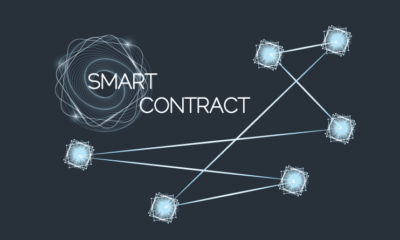
Distributed ledger technology – i.e., blockchain – is increasingly more pervasive in enterprise settings. Human resources (HR) is an extremely viable playground for blockchain.
What is Blockchain in HR?
Blockchain is a distributed, immutable ledger that enables the recording of transactions and the monitoring of commodities in a business network. Intangible assets include intellectual property (IP), copyrights, patents, and brand recognition. Tangible assets include a house, car, currency, and territory. On a blockchain network, almost anything that is valuable can be observed and traded, reducing risk and costs for every party involved.
Human resources (HR) is an information-driven function. The more quickly and accurately it gets received, the better. Since it offers instantaneous, shared, and entirely open data recorded on a permanent ledger that can only be accessed by authorized network members, blockchain is an excellent choice for disseminating this information.
A blockchain network can monitor orders, payroll administration, user accounts, and employee documentation, among many other things.
How Does Blockchain in HR Work?
To understand how it works in HR, we need to first break down the three steps of blockchain’s functionality:
- Activity is recorded as a block of data: The data block will record the information you’re selecting, including who, what, when, where, and when and what amount, and any condition, like an employee’s temperature, when they resume office after COVID.
- Multiple blocks are connected together: These segments constitute a data chain. They confirm the precise time and succession of events, and the blocks interlock safely. This implies that no block can be modified or inserted between existing blocks.
- The blocks form an irreversible chain: Each additional block reinforces the authenticity of the preceding block and, by implication, the entire blockchain. This makes the blockchain unchangeable. There is no likelihood of interference by someone with malicious intent, creating a reliable ledger of HR operations.
Gartner forecasts that blockchain technology will generate $3,1 trillion in terms of business value by 2030. This not only includes financial services on blockchain, such as cryptocurrency, but also value generated from the transformation of business activities like HR.
Blockchain Solves Real-world HR Problems
The role of blockchain in HR is massive, as it could address some of the industry’s pressing issues. HR leaders need to zoom out and consider the business benefits of blockchain instead of only the technical intricacies of how it works. Potentially, we are looking at blockchain-based HR solutions that could improve:
- The talent supply chain: Regarding recruitment and employment, the availability of data on existing staff members who might be appropriate for a certain task – is limited, and pairing is ineffective. Consequently, employers pay 15% to 30% of contractual expenses to intermediaries.
- Payment delays: Due to unreliable supply chains and delivery systems, suppliers, contractors, consultants, and freelancers are often stuck waiting several months for payment. This is not only frustrating for everyone involved, but it additionally has a detrimental impact on the long-term sustainability of businesses.
- Fraudulent CVs: There is little trust in the identity and qualifications of applicants, and it is common knowledge that many candidates falsify their data or credentials on their CVs. This is often exacerbated due to layoffs and poor macroeconomic conditions.
- Centralized data and a lack of trust: Job forums and platforms such as LinkedIn make the search process simpler, but digitalization has a long way to go. Currently, employees are careful with their personal information, which may limit HR accessibility.
- The rise of the gig economy: It is now a developing trend for individuals to decline permanent employment and work contracts. HR teams need to find a way to orchestrate their gig workforce; otherwise, they could miss out on a major piece of the global talent pie.
Use Cases of Blockchain in Human Resources
Thanks to its immutable data structure and decentralized storage, blockchain can be used for a number of key HR applications. These include:
1. Streamlining talent sourcing
Recruitment can be a lengthy and time-consuming process, which is why many businesses choose to hire new employees via third-party agencies. However, this decision can often be exorbitant. In the interim, Blockchain technology can address this issue by allowing recruiters to verify applicants’ information in a far more brief period of time – practically in real-time – compared to conventional verification.
2. Payroll for international employees and gig workers
By reducing the effects of currency fluctuations, blockchain could facilitate transnational payroll processing. Already, agencies have emerged to help with payment across borders by converting fiat currency into bitcoins, executing traceable operations, and then reestablishing digital money back into local currency. Eventually, blockchain platforms could facilitate anytime, anywhere payments and cash withdrawals to support gig and freelance workers.
3. Employee records management
Human Resources departments frequently handle sensitive information, like individually sensitive data, wage data, as well as performance evaluations.
The protection of this information is of the utmost importance. By utilizing blockchain technologies – i.e., decentralized data storage systems – HR departments are able to store this information in an encrypted and impermeable manner. Once documented, the data is unchangeable, and only authorized individuals can access it, minimizing the risk of information theft or breaches.
4. Performance management and feedback
Using blockchain technology, which is updated in real-time, an organization can readily trace and oversee the efficiency of its staff members. It can assist them in deciding which employees require training (and in what areas), and the precise conditions that lead to better performance. Blockchain can also be used to facilitate anonymous employee feedback and manager performance evaluation. The technology would ensure accountability and transparency around feedback conversations.
5. Smart contracts for seasonal and contingent workers
Smart contracts are basically contracts that implement themselves within the parameters of the arrangement between client and vendor, as inscribed directly into bits of code. These contracts are maintained on the blockchain and are automatically executed when certain criteria are fulfilled. Smart contracts may also autonomously initiate particular actions according to predetermined conditions, including a contract extension or salary payment.
This makes them a perfect solution for human resource processes involving employment contracts, confidentiality contracts, and various other legal paperwork.
For instance, blockchain-based smart contracts may release escrow assets immediately upon the completion of assigned responsibilities or at the conclusion of the season. This could minimize delays for employees and alleviate businesses’ cash flow challenges.
6. Employee engagement, rewards, and recognition
Additionally, blockchain technology can be used to increase employee engagement. Employers can offer rewards and advantages to employees for attaining specific goals or milestones by utilizing blockchain-based incentive programs. These honors can be housed in a blockchain-protected digital wallet, giving employees an actual and safe incentive – and motivator – for their accomplishments.
Adoption Barriers to Blockchain in HR
While blockchain has the potential to be a paradigmatic shift in human resources, a few adoption barriers remain. These include:
- Integration challenges: When an organization decides to implement blockchain in HR, the primary issue is integrating decentralized, modern technologies with current HR processes and systems.
- Implementation costs: The adoption of blockchain may necessitate the establishment of new IT infrastructures. While big corporations may be in a position to afford this, many small as well as medium-sized businesses are likely to struggle.
- Scaling blockchain-based HR: In comparison to traditional centralized systems, blockchain could be far less scalable across an entire organization or a vast number of transactions carried out under different jurisdictions.
- Additional security needs: Blockchain technologies might be regarded as the most secure, but they could present new issues related to security and privacy. Organizations may require further investments in cybersecurity.
- Learning curve: As blockchain remains in its infancy, it can be difficult for employees to comprehend and get around the system. This can be worrisome if an organization has a large number of non-technical personnel.
Conclusion
If you look at the industries and verticals that stand to gain the most from blockchain, HR is right up on that list. The technology’s suitability for data management, combined with its global reach, makes it an excellent fit for HR. However, these are early days for enterprise-grade blockchain and related technologies like Web 3.0 – it is advisable for HR to await a greater degree of maturity before adoption.


